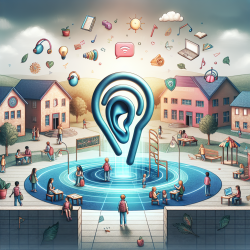The digital age has transformed the landscape of communication, especially for adolescents who are often at the forefront of technological adoption. However, with the rise of social media platforms comes a darker side that affects youth mental health. A recent systematized review titled The role of online social networking on deliberate self-harm and suicidality in adolescents: A systematized review of literature sheds light on this critical issue.
The Impact of Social Media on Adolescent Mental Health
The review highlights a significant correlation between increased social media use and rising rates of self-harm and suicidality among adolescents. The findings reveal that social networking sites serve as platforms where vulnerable youth communicate about mental health issues, sometimes receiving negative reinforcement that exacerbates their conditions.
- Youth involved in self-harming behaviors are more active on social media than their non-self-harming peers.
- Exposure to negative messages promoting self-harm is prevalent on these platforms.
- The emulation of self-injurious behavior from shared videos is a growing concern.
- Youth spending more time on social media report higher levels of psychological distress and unmet mental health needs.
Strategies for Practitioners
As practitioners working with adolescents, it is crucial to understand these dynamics to provide effective support. Here are some strategies that can be implemented:
- Enhance Digital Literacy: Educate both adolescents and their caregivers about the potential risks associated with social media use. Encourage open discussions about online experiences and feelings.
- Promote Positive Online Communities: Guide youth towards supportive online communities where they can find positive reinforcement and peer support.
- Monitor Online Activity: Work with parents to monitor adolescents' online activities without infringing on their privacy, ensuring they are not exposed to harmful content.
- Encourage Professional Help: Advocate for seeking professional mental health support rather than relying solely on peer advice found online.
The Role of Further Research
This review opens avenues for further research into how specific social media interactions contribute to mental health outcomes. Understanding these nuances can help develop targeted interventions that address the unique challenges posed by digital environments.
To read the original research paper, please follow this link: The role of online social networking on deliberate self-harm and suicidality in adolescents: A systematized review of literature.










